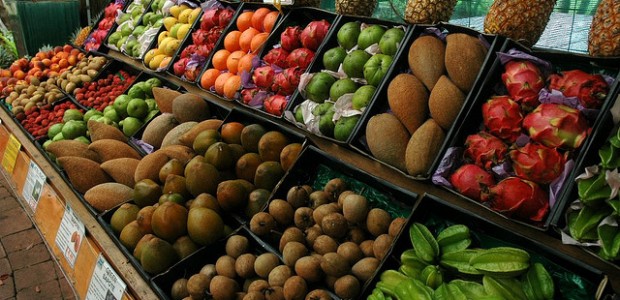We are extremely excited to introduce Moffitt Cancer Center to the Know Cancer Community!
Moffitt is based out of Tampa, Fla., and focuses on the prevention and cure of cancer. It is one of the world’s most sophisticated cancer centers and has a staff of physicians & medical researchers who are among the best in their respective fields.
As someone who has been through cancer, I fully recognize the role that diet plays in overall health and its importance during cancer treatment.
Most of us recognize that food represents much more than nourishment and plays an important role in our daily lives. Food is something we enjoy when celebrating, use to show our love, rely on to console ourselves and often use as a reward. During cancer treatment, eating can take on a whole new level of importance as changes occur in eating patterns, types of foods and amounts.
Click here to learn more about diet and cancer prevention, nutritional needs during treatment, cancer survivorship …and even e-mail a Moffitt dietitian.
Patients and their caregivers often develop an intense focus on food and diet. Food choices can cause power struggles and disagreements among patients and family members. This can create a great deal of anxiety and worry for patients and their families. Further compounding this conflict is lack of information from a qualified health care professional. This absence of reliable information about nutrition and cancer often leads to more confusion and anxiety. Friends and family members who wish to help may feel compelled to share information from the Internet, television or e-mails. Often this information is not reliable and based on one person’s nutrition-related experience.
In order to set the record straight, let’s review some facts about nutrition and cancer. First and foremost, it’s important to maintain energy intake (calories) and protein intake from our food. Without adequate calories and protein, our bodies do not function as well. Our energy level is decreased, and we might not be strong enough to withstand further treatment. A prolonged deficit of calories and protein may also impact the function of the immune system and could delay healing and repair of tissues.
Sometimes, if appetite declines, it’s necessary to eat foods with a high-calorie density such as rich ice cream, buttery sauces, whole milk and gravies. These are foods that we may choose to avoid when following a cancer-prevention diet; however, it may be necessary to include these items during the treatment phase if weight and food intake start to dwindle. Other foods that are high in protein and calories include cheese, peanut butter, cashews, whole milk, almonds, lean meats and poultry, eggs, and seafood.
Secondly, vitamins and minerals are important. However, high doses of vitamins and minerals, specifically antioxidants, may actually interfere with cancer therapy. You should discuss use of supplements with your health care team. Many people get overly focused on specific vitamins and minerals and lose sight of the priority role of calories and protein in the diet of someone undergoing cancer treatment. Without adequate calories and protein, vitamins are not effective.
Third: Fruits and vegetables are packed with nutrients. Most are low in calories. Eating lots of fruits and vegetables is indeed recommended to achieve a healthy weight and for overall disease prevention, but shifting to this type of diet may not be a priority during cancer treatment and recovery when calories and protein are key.
Each person’s nutrition care plan should be individualized according to the unique needs and stage of treatment. The health care team, which includes a registered dietitian, can help with this. If you would like to learn more about nutrition and cancer, please visit Moffitt at www.insidemoffitt.com where you can review a wide range of topics or submit a question through our Ask A Dietitian feature.
Please be sure to check out all the great links listed throughout this post — and take the time to browse Moffitt’s website for all of the extensive information and support they have available. BIG THANKS to Moffitt for not only being a phenomenal facility but a large supporter of Know Cancer and our initiatives!
Nutritional Information provided by: Kathryn Allen, MA, RD, LD/N, CSO Maureen Gardner, MA, RD, LD/N, CSO
